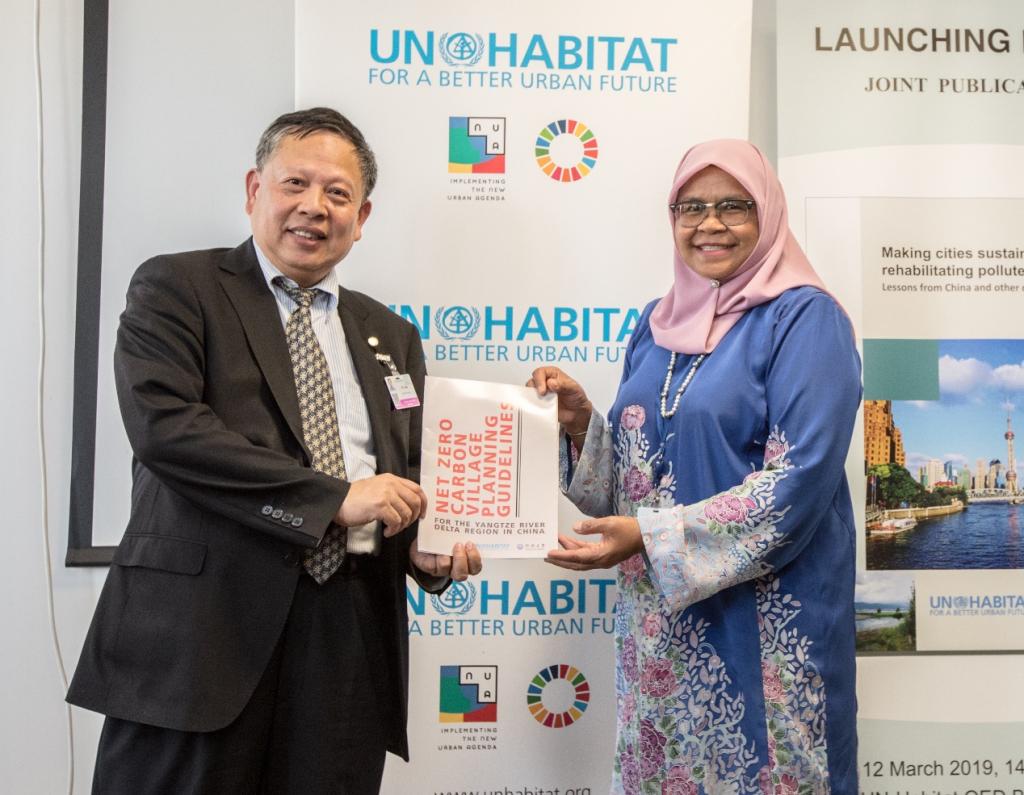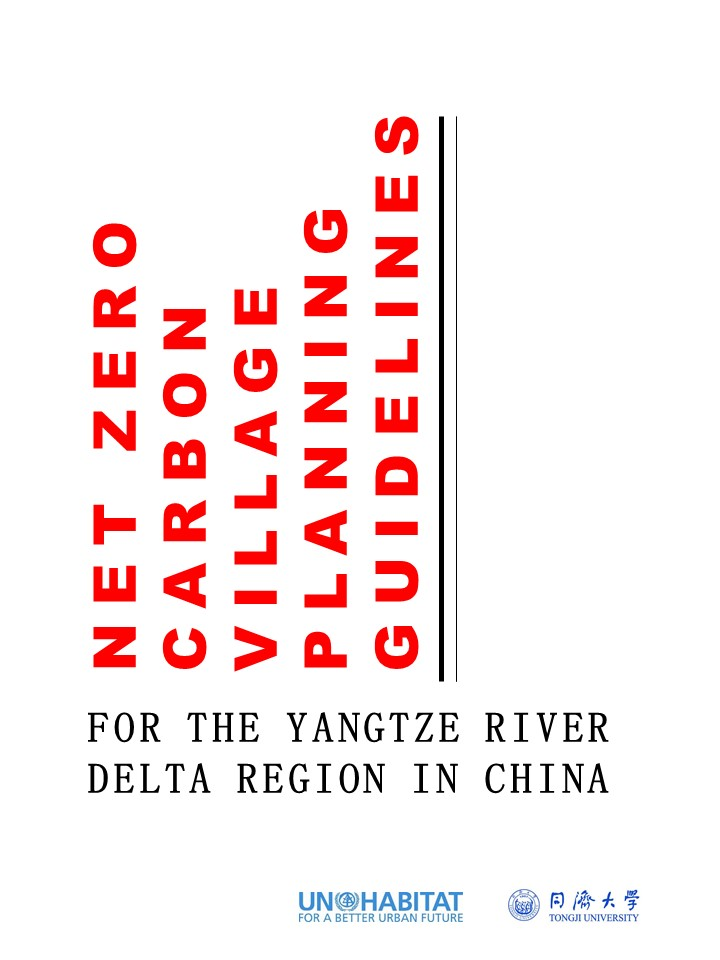12 March 2019, during the fourth United Nations Environment Assembly (UNEA-4), UN-Habitat and Tongji University launch the brochure of the report on Development Guidelines for Net Zero Carbon Villages in the Yangtze River Delta Region in China. The UN Under-Secretory-General and Executive Director of UN Habitat Ms. Maimunah Mohd Sharif, the lead author of the report and Executive Vice President of Tongji University Prof. Wu Jiang have attended launch.

Written by the team of Prof. Wu Jiang and experts from UN Habitat, the report has developed 10 principles on energy demand and conversion, GHG emission, water, solid waste, energy-water-food-waste cycle, as well as providing employment and leisure, and make the village as living educational facility for raising ecological awareness. Providing the context of Yangtze River Delta in China, the report also studies on 5 cases in Xiebei and Xin’an Village of Chongming, Xinjian Community of Zhoushan, Meilin Village of Changzhou, and Shantan Village of Taizhou, trying to propose the development strategy of energy saving, energy efficiency and circular economy in this area, in order to achieve the target of a Net Zero Carbon town.

For more than forty years, UN-Habitat has supported countries worldwide to develop urban planning methodologies and strategies to address current urbanization challenges such as population growth, urban sprawl, poverty, inequality, pollution, and climate change at national, city and neighbourhood levels, including urban-rural linkages. It is for this reason that UN-Habitat and Tongji University have collaborated to produce guidelines on zero-carbon strategies for the development of villages in the Yangtze River Delta. The research is part of a wider project in partnership with the Shanghai Municipal Government as well as Shanghai Research Institute of Building Sciences and Shanghai Academy of Environmental Sciences working on technological and scientific dimensions of zero-carbon solutions and coordinated by Tongji University.The full report will be launched during the first UN Habitat Assembly on 27-31 May 2019.
Source:IESD